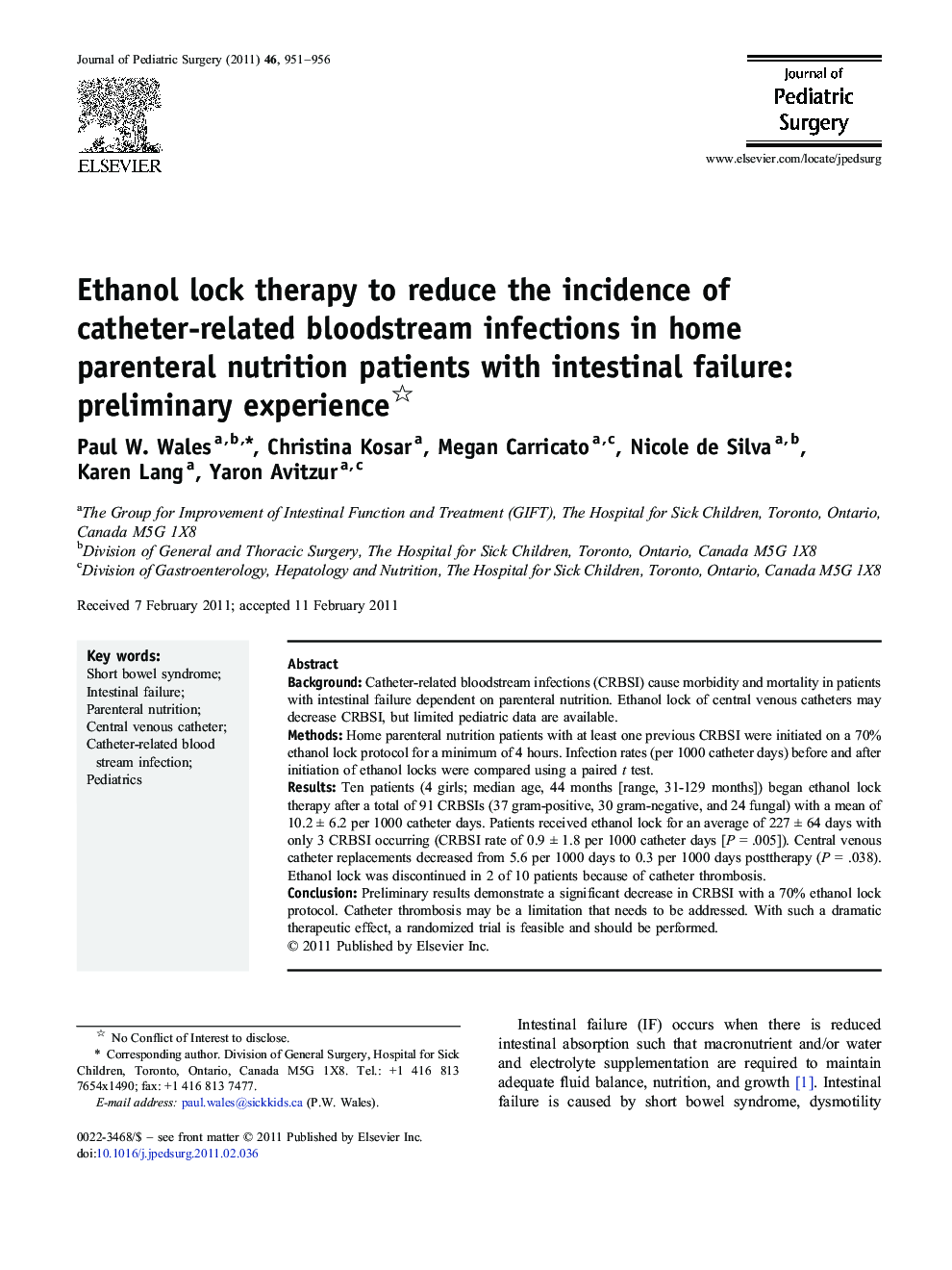| Article ID | Journal | Published Year | Pages | File Type |
|---|---|---|---|---|
| 6217958 | Journal of Pediatric Surgery | 2011 | 6 Pages |
BackgroundCatheter-related bloodstream infections (CRBSI) cause morbidity and mortality in patients with intestinal failure dependent on parenteral nutrition. Ethanol lock of central venous catheters may decrease CRBSI, but limited pediatric data are available.MethodsHome parenteral nutrition patients with at least one previous CRBSI were initiated on a 70% ethanol lock protocol for a minimum of 4 hours. Infection rates (per 1000 catheter days) before and after initiation of ethanol locks were compared using a paired t test.ResultsTen patients (4 girls; median age, 44 months [range, 31-129 months]) began ethanol lock therapy after a total of 91 CRBSIs (37 gram-positive, 30 gram-negative, and 24 fungal) with a mean of 10.2 ± 6.2 per 1000 catheter days. Patients received ethanol lock for an average of 227 ± 64 days with only 3 CRBSI occurring (CRBSI rate of 0.9 ± 1.8 per 1000 catheter days [P = .005]). Central venous catheter replacements decreased from 5.6 per 1000 days to 0.3 per 1000 days posttherapy (P = .038). Ethanol lock was discontinued in 2 of 10 patients because of catheter thrombosis.ConclusionPreliminary results demonstrate a significant decrease in CRBSI with a 70% ethanol lock protocol. Catheter thrombosis may be a limitation that needs to be addressed. With such a dramatic therapeutic effect, a randomized trial is feasible and should be performed.
